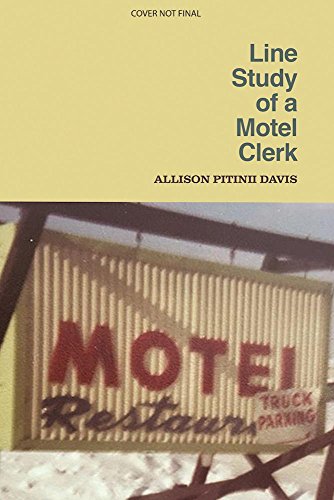

Full description not available
R**N
a great read, the landscape of struggle and redemption
A Poet's Poet, a great read, the landscape of struggle and redemption. Every word is thoughtfully placed and leads one to look at their own lives of where they are and how they got there. A grand tour of existence.
D**R
Stunningly bold and original. Written with all the force ...
Stunningly bold and original. Written with all the force of a Sylvia Plath at the height of her powers, yet as whimsical as William Carlos Williams. Don't miss this.
C**Y
GET THIS POETRY BOOK
Great power poetry that made me think.
R**S
Really Solid yet Imaginative Writing
This book is fine revelation of American working-class life set in Youngstown, Ohio. Her poems locate and extend our world. Whitman would embrace her.
N**Y
A book by a poet who takes poetry very seriously.
Seamus Heaney in his essay “Frontiers of Writing” describes a poem as “being about a moment of achieved grace between people with different allegiances rather than a representation of a state of constant goodwill in the country as a whole.” Ms. Davis articulated an unexpected and uncanny echo of this sentiment in her interview with Midwestern Gothic, in which she said of the characters in her collection Line Study of a Motel Clerk, “Perhaps the one trait that ties Midwesterners together more than anything is a reluctance to be grouped, and at least where I come from, a self-reliance bordering on insularity.” To achieve grace, then, among such people, is the achievement and redress of poetry. Ms. Davis’ poems speak with the people rather than for them, and in doing so also accomplishes a remarkable feat of imaginary re-collection, in the literal sense of pulling together disparate threads of memory and language.The collection spans four generations of Ms. Davis’ family, chronicling, in poems full of honed and often surprising imagery, immigration, cross-cultural marriage, small-business ownership, work, and the granular experience of Rust Belt urbanity in the 1970s and 80s. In the opening poem, “In the Back of the Motel Clerk’s Mind, the Key Rack,” the line, “There is a spare geometry of vacancy” signals both the habitual pattern of anxiety that shapes a small hotel owner’s days and the much grander architecture of loss and absence that is part of the immigrant experience.The poems speak in many voices: one is Ms. Davis’ own, the voice of a child who says in “The Line Moves at the Laundry,” “this is my history: I watch it with subtitles <…> my lines are cut.” This speaker goes on to survey and respond to other writers–Mayakovsky, Reznikoff, Singer. It is perfectly rational, then, that the poem about education, a process that is generally understood to equip one with answers to life’s common questions, should be called “Silence” and dwell instead on the lacunae that a descendant of immigrants finds in place of relevant experience:The silence lengthened by those who couldn’t speakin such weather. For lunch they gave us orange segmentsand a question with many answers. One was forgetting.One was our fathers’ fathers, most of whom we never met.Many of whom are silent.An inevitable part of the immigrant experience (and here I do speak from the immigrant experience) is being doubly-irrelevant: not fitting into the existing system of references in the new country while simultaneously losing touch, falling out of the constellation of signifiers in the old. Ms. Davis’ poems sense and articulate this phenomenon with heart-piercing acuity. Recalling her mother’s habit of pretend-spitting over her shoulder, a speaker says, “to rid the world of genocide/and hash. I was raised in a utopia/above her shoulder,” and in another poem: “My mother’s nightmare/is someone eating Greek food without/having an experience.”Line Study of a Motel Clerk is a book by a poet who takes poetry very seriously. Like the motel clerk of the title, the poet here is “the great bearer of keys”—someone who has committed the effort of her intellect and imagination unequivocally and fully to the lives of specific people in a specific place, and the grace between them.
K**Y
no ideal of love and success
In one of the most important books of poems about the working class of the Rust Belt, Davis spares no detail, no character, no ideal of love and success, in making this insightful work of immigrant family history. Artful and political.
A**R
Moving Poetry
Allison's writing takes you back in time, moves you, and leaves you wanting more.
Trustpilot
3 weeks ago
3 weeks ago